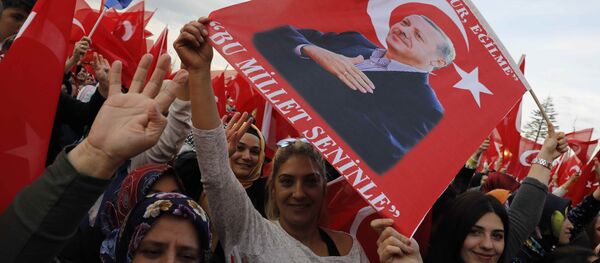Simon Watmough, a postdoctoral research associate at the European University Institute in Italy shares his detailed knowledge of Turkey, its people, and politics.
Erdoǧan’s power base is identified as being in rural Turkey, and Simon describes the president as being a ‘Black Turk;’ a conservative, traditional, pious man. The possible connection between the attempted coup in July 2016 and the referendum; in that the coup possibly gave Erdoǧan the opportunity to consolidate his power base and pressurize the opposition during the state of emergency that came after the coup is discussed. The ‘No’ campaign was apparently given very little air time and the campaigns for the referendum were, according to Simon, played on a radically uneven playing field.
Simon says that NATO will continue to back Turkey despite the country’s possible turn to towards authoritarianism because of the strategic geopolitical position of the country in regards to Syria, at least in the short term. Unpredictability is likely to continue as far as the country’s foreign policy is concerned, despite Erdoǧan’s increased powers.
All of the President’s new powers will only come into force until after he wins an election in 2019. It is possible, but unlikely, that he may not win that election.
We'd love to get your feedback at radio@sputniknews.com
Have you heard the news? Sign up to our Telegram channel and we'll keep you up to speed!


